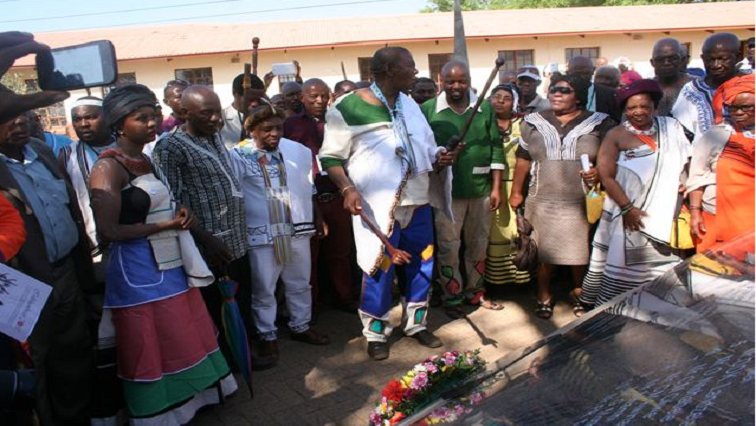The AmaHlubi tribe in the Eastern Cape has vowed to fight for the recognition of its kingship. The issue was discussed when the Hlubi people met to celebrate their heritage at Qumbu.
The Hlubi tribe is said to be much older than AmaXhosa and Zulu tribes, but their kingship is yet to be recognised by the government. While AmaHlubi settled in the then Natal with the Zulu nation, currently they are scattered across the country, making it hard to settle the kingship matter.
Acting chairperson of the House of Traditional leaders, Chiefess Nosandi Mhlauli says the tribe is anxious about learning about their cultures and customs that have been lost throughout the years.
“What is key about AmaHlubi is they want to know everything about themselves because they are scattered everywhere. Now they are gathering to share information about their culture that includes their traditional attire, the language. What is key about them is the issues of the values, the values that include ubuntu as we are faced with the issue of moral decay.”
Matatilele Local Municipality Speaker Nomasomi Mshuqwana says the heritage event is a step in the right direction to know more about their clan.
“By claiming that kingship, we must have programs that make us understand who we are and remember how we were dressing, what food we were eating and a lot that has to do with AmaHlubi. We want to remind every Hlubi across the country and where do we come from because there are lots of settlements of AmaHlubi across South Africa.”
AmaHlubi traditional leadership weighs in on the land ownership debate
In September, the AmaHlubi traditional leader, Chief Madoda Zibi of Khayakhulu near Rustenburg in the North West, said land is important for South Africans. He spoke to SABC News during activities to mark Heritage Month and in recognition of the decision of the AmaHlubi’s previous leaders to buy land in the predominantly-Setswana-speaking North West 96 years ago. The community commemorated its arrival on the Khayakhulu land, near Rustenburg. The Xhosa-speaking clan finds itself in the predominantly Setswana province.
The clan arrived in the province on September the 20th, 1924, led by Chief Nonkonyana Shadrach Fuba Zibi. He was among the young men from eNgcwazi in the Eastern Cape who volunteered to serve as soldiers in France in the First World War.
Some of them died when their ship, the SS Mendi, sunk. Chief Zibi said they appreciate the decision of their ancestors to buy land.
” Land is crucial to the development and we need to make sure that it’s used to produce the necessary food and all such things so that our people can survive so that the people can get the benefit of what they acted for,” says Chief Zibi.
The clan holds prayer sessions annually on September 20th and hosts tribal celebrations, with the aim of preserving their culture and heritage for the benefit of future generations.
“We are doing this for our great-grandchildren, to not forget our culture and tradition. They must know this is the remembrance of our forefathers,” says one community member.
“We teach our children the same teachings we were brought up with, they must know our history and hold on to it,” says another member.
The traditional leadership says despite being in a province in which people predominantly speak Setswana, they have been encouraged by the diversity in the area and the celebration of different South African cultures.


